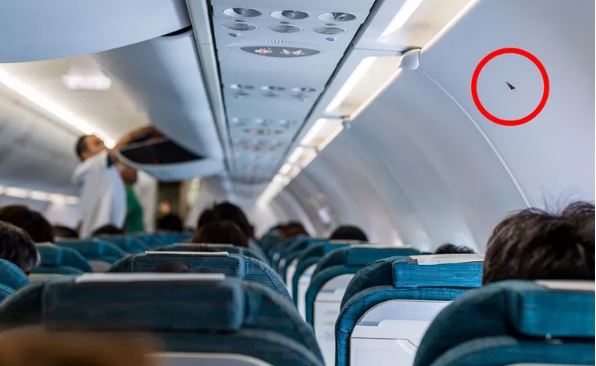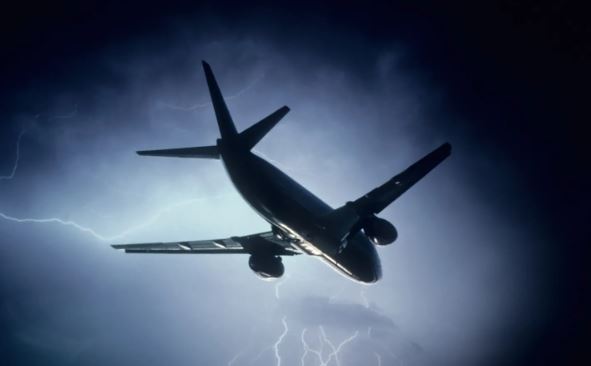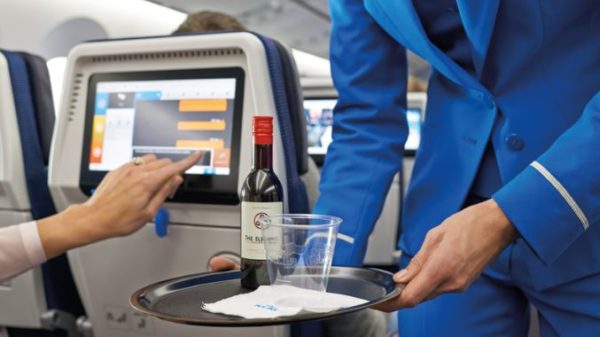Lifestyle
Have you noticed black triangles inside airplanes? Here’s what it means

If you search the internet for the functions of these triangles, you will find all kinds of theories.
Have you ever noticed this when boarding a plane? If you let your eyes wander around the cabin on the way to your seat, you’ll notice small, black triangles above some of the windows on the left and right sides of the plane.
If you search the internet for the functions of these triangles, you will find all kinds of theories. For example, you can read on the forums that cabin crew can best see through this window whether the way is clear when the plane is pushed back from the parking position.
Other theories suggest this is the best seat on the plane or that the symbol is used to mark a secret emergency exit. There is also speculation about some sort of “predetermined break point” in the event of an emergency landing. But it’s all nonsense!
What are these little triangles really about? Bild asked Lufthansa Technik AG in Hamburg.
“Some types of commercial aircraft have such triangles, usually four. One on each side at the height of the leading and trailing edges of the wings. They mark the two points from which the crew has the best view of the wings during visual inspection. This means that they do not have to look for a suitable window in the cabin,” explains the Lufthansa Technik spokesman.
And this can be crucial, especially when time is short in an emergency situation.
“For example, if a visual inspection of the flaps is required, the window under the forward markings provides the best view of the flaps on the leading edge of the wing, the so-called slats. The window under the rear marking provides the best view of the trailing edge of the wing, where the flaps are located.”
Slats and flaps are always used when a lot of lift is needed, such as during takeoff and landing.
Passengers can also use a window seat with a triangle. Anyone sitting there knows they are in the best position to take photos or videos of the wings in flight.










